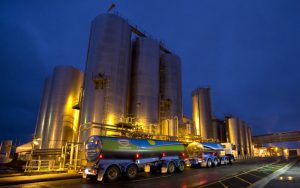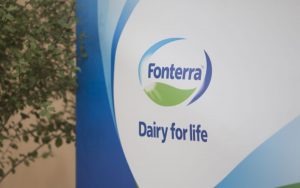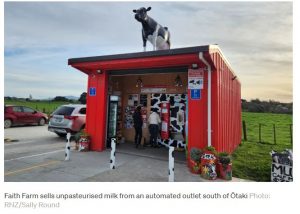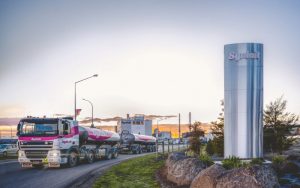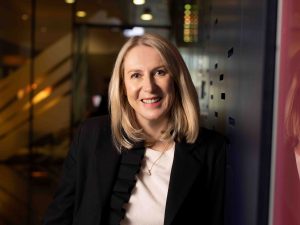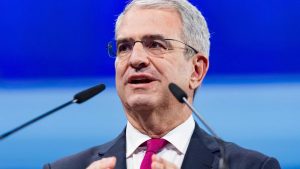
The a2 Milk Company increased annual profit 52% and said its infant formula business has returned to growth after it took the “difficult decision” to destroy excess inventory that had built up during the Covid-19 pandemic.
Net profit increased to $166.2 million in the year to the end of June, from $80.7m the previous year, while revenue rose 20% to $1.45 billion. The result was ahead of analyst expectations.
The pandemic hurt A2 Milk’s key Chinese infant formula business as closed borders and lockdowns disrupted shipping, the birth rate fell, and competition from local brands increased. It wrote down more than $100m of older stock and said the outlook for its business is now positive with continued growth in revenue and profit expected this year.
“It was a successful year for The a2 Milk Company returning to double-digit growth in revenue and earnings despite significant headwinds,” said managing director David Bortolussi. “Those difficult decisions we made last year around inventory have worked and set the foundations for the result this year.”
The company noted that the infant formula market in China, the world’s largest, remained “challenging”, but said there was still “significant growth opportunity” for A2 Milk. It reiterated its goal for $2b of sales by about 2026.
According to the China National Bureau of Statistics, the number of births in China fell 11.5% to 10.6 million in 2021, and A2 Milk expects the decline to continue in 2022.
This led to a 4.3% overall decline in Chinese infant powder market volume in the year to the end of June. The overall market value slipped 3.1% while prices rose 1.3%.
A2 Milk said its business was benefiting from a shift to ultra-premium brands, more rapid growth of the A2 protein segment, increased concentration towards market leading brands and a shift to online channels.
“We are in a really nice spot to continue our growth, notwithstanding what the market is doing,” Bortolussi said.
Sales of the company’s Chinese label infant formula rose 12% to $437.6m, driven by record high market shares achieved in Mother and Baby stores, which lifted to 3% from 2.2%, and Chinese domestic online channels, which advanced to 2.5% from 2%.
Meanwhile, a decline in English label product was showing signs of stabilisation, with the overall market value down 9% in the year to June, compared with a 33% decline the previous year, the company said.
Sales of A2 Milk’s English label formula jumped 12% to $584.6m after the company restructured the way its products were shipped to China in favour of more direct relationships.
Despite “challenging market dynamics”, A2 Milk said growth in its Chinese and English infant formula was “encouraging”.
“It has been a very good year for us in China, the IFM category has had headwinds, but we are getting just stronger,” said A2 Milk’s Greater China chief executive Xiao Li.
The company expects revenue to increase in both labels this year and said there was “significant opportunity” to grow its market share from its current level of 4% to 5%.
Jarden senior analyst Adrian Allbon said the increase in revenue was helped by a 36% increase in marketing spending in China to $230m.
“The revenue uplift looks to have been underpinned by materially higher marketing spend vs our expectation and almost opposite to market expectations given the Shanghai lockdowns over the period,” Allbon said.
A2 Milk said the extra marketing helped boost the brand to new highs and loyalty increased.
“The company has gone through a pretty brutal turnaround the last couple of years,” said Fisher Funds senior portfolio manager Sam Dickie.
Bortolussi had made bold calls, like writing off inventory and taking more control of its sales into China, which hurt short-term sales but made the business more robust in the longer term, he said.
“The things they can control, they’re controlling well,” Dickie said. “If they can beat expectations and execute well in this very tough environment, while undergoing a turnaround and with this hurricane headwind of a falling birthrate, imagine when those things stabilize.”
Dickie said Fisher Funds had been buying shares in A2 Milk over the past six to nine months.
“They’re in turnaround mode – they’ve still got some tough headwinds out there, but they seem to be executing very well with the aspects they can control.”
The company’s shares were the biggest gainer on the NZX in late afternoon trading on Monday, jumping 9.7% to $6. The stock has lost about 57% of its value over the past three years.
A2 Milk ended the financial year with $816.5m in net cash, and it plans to spend as much as $150m on buying back its shares over the next year.
The company does not pay dividends.




